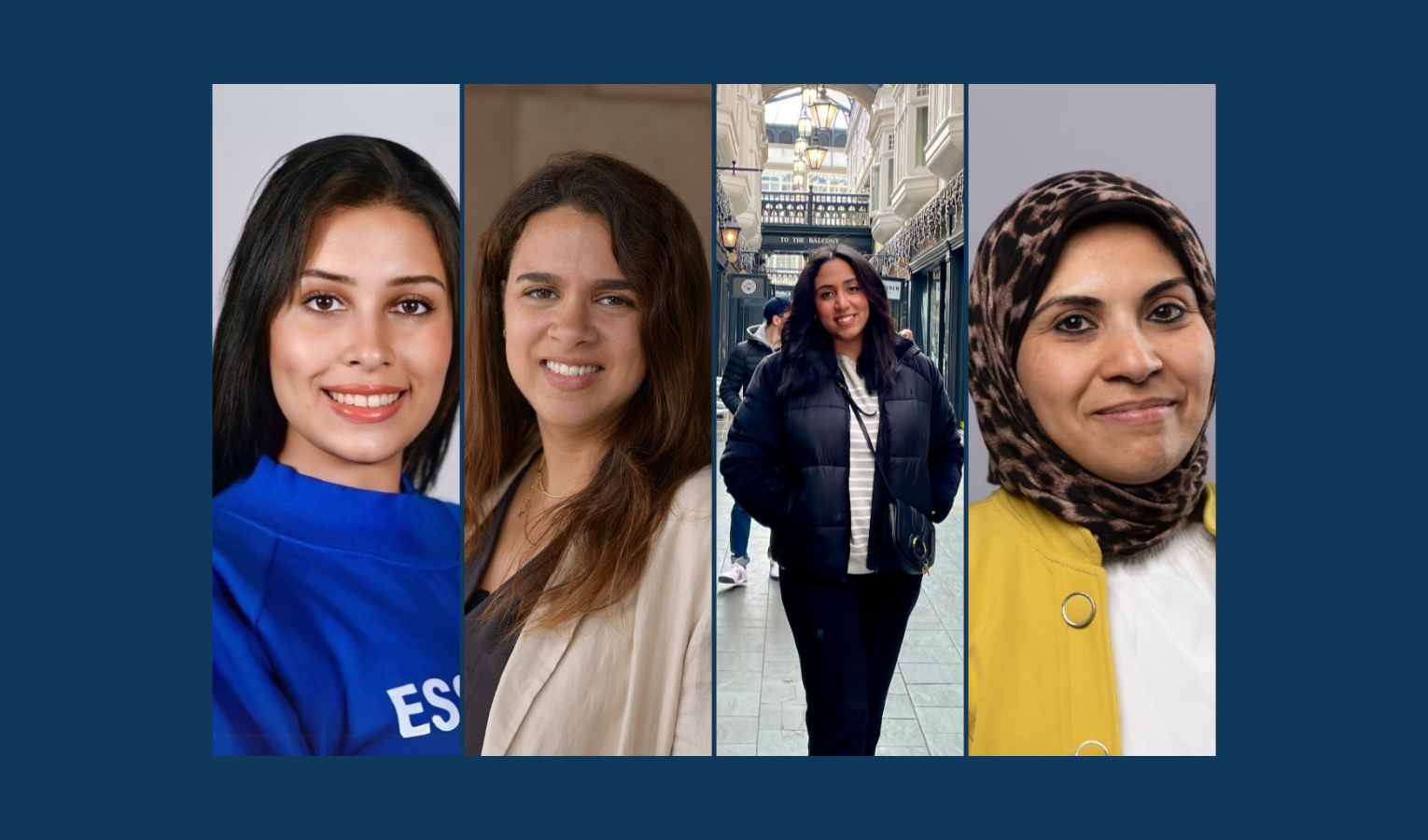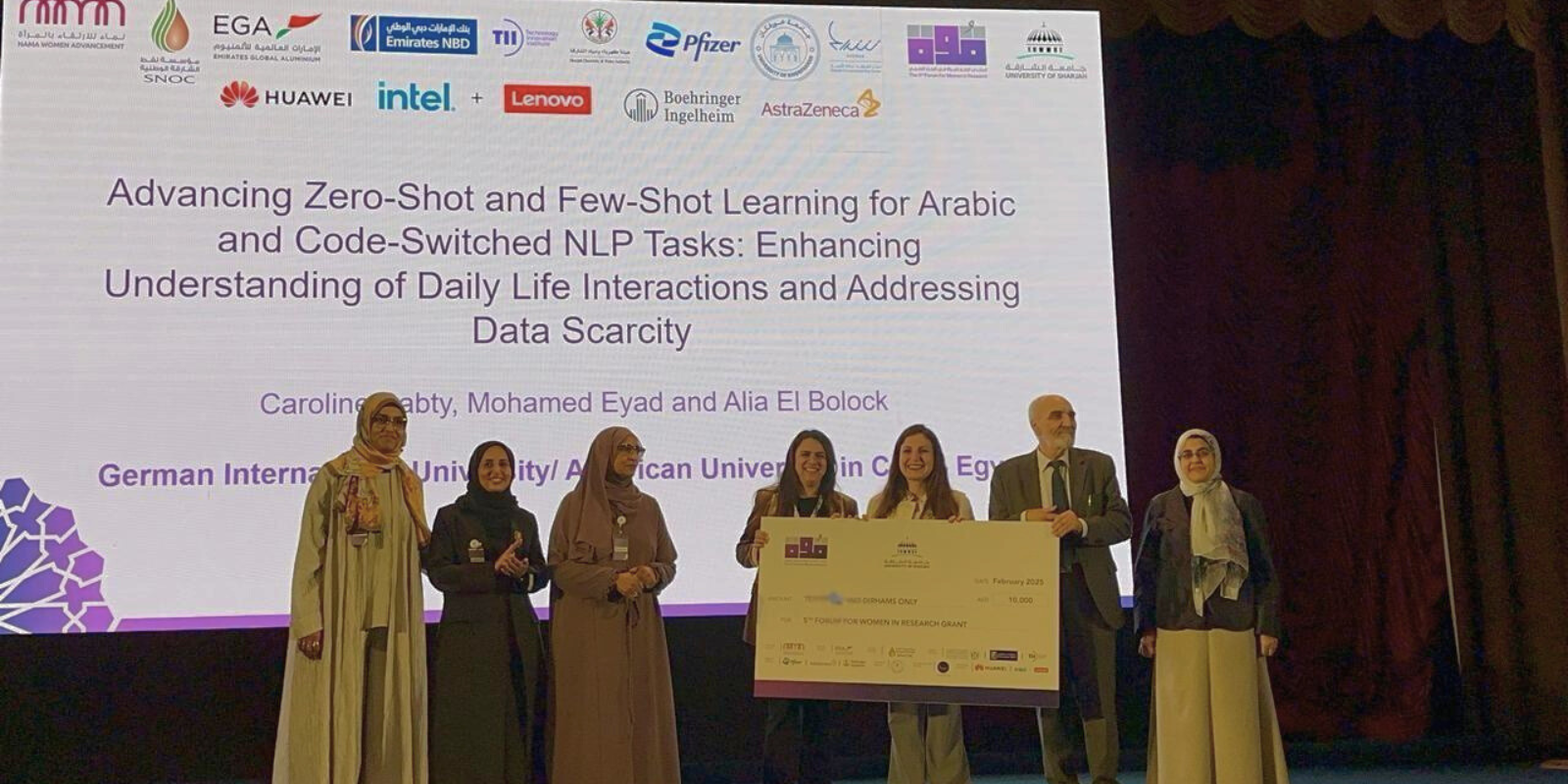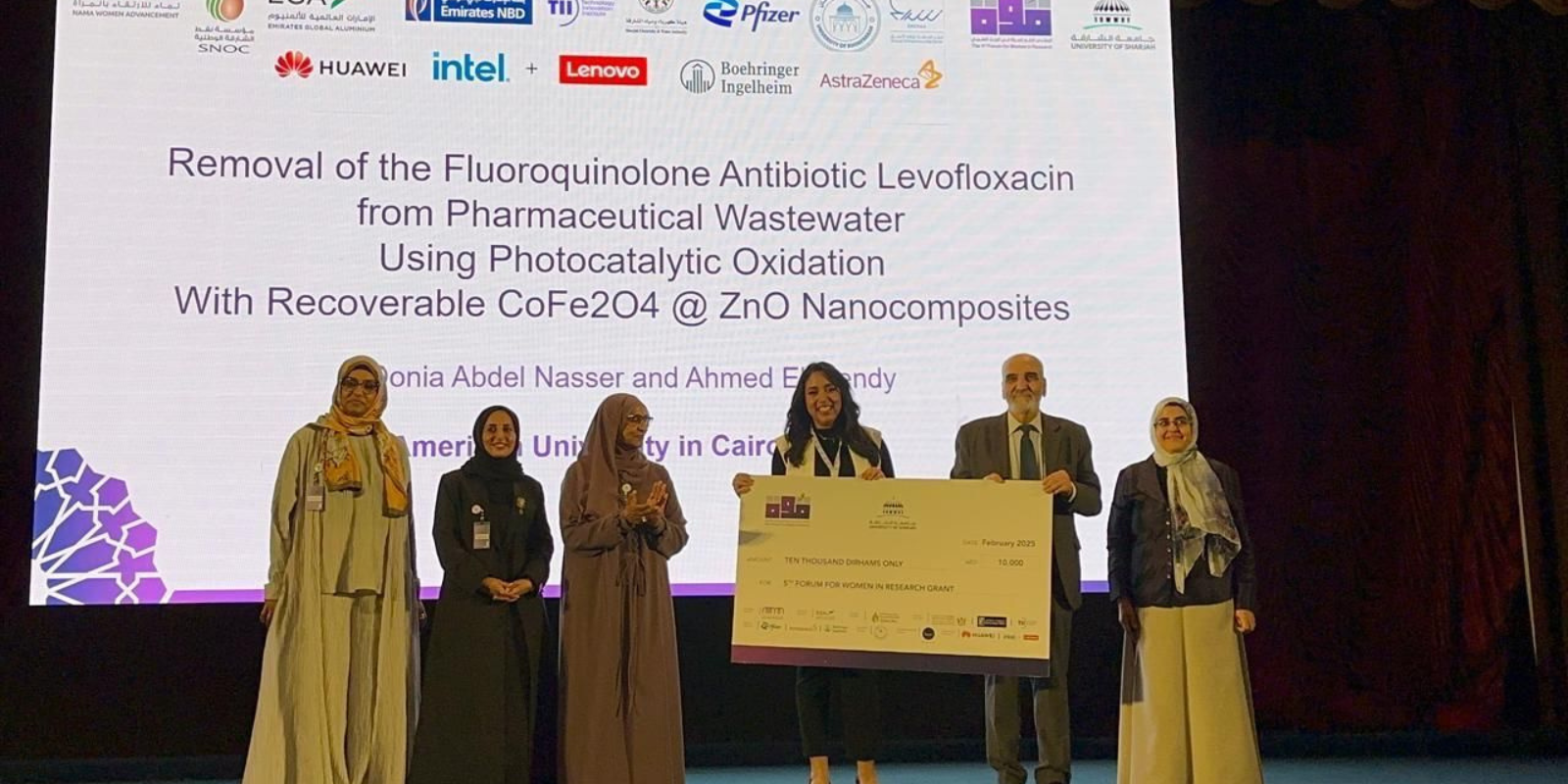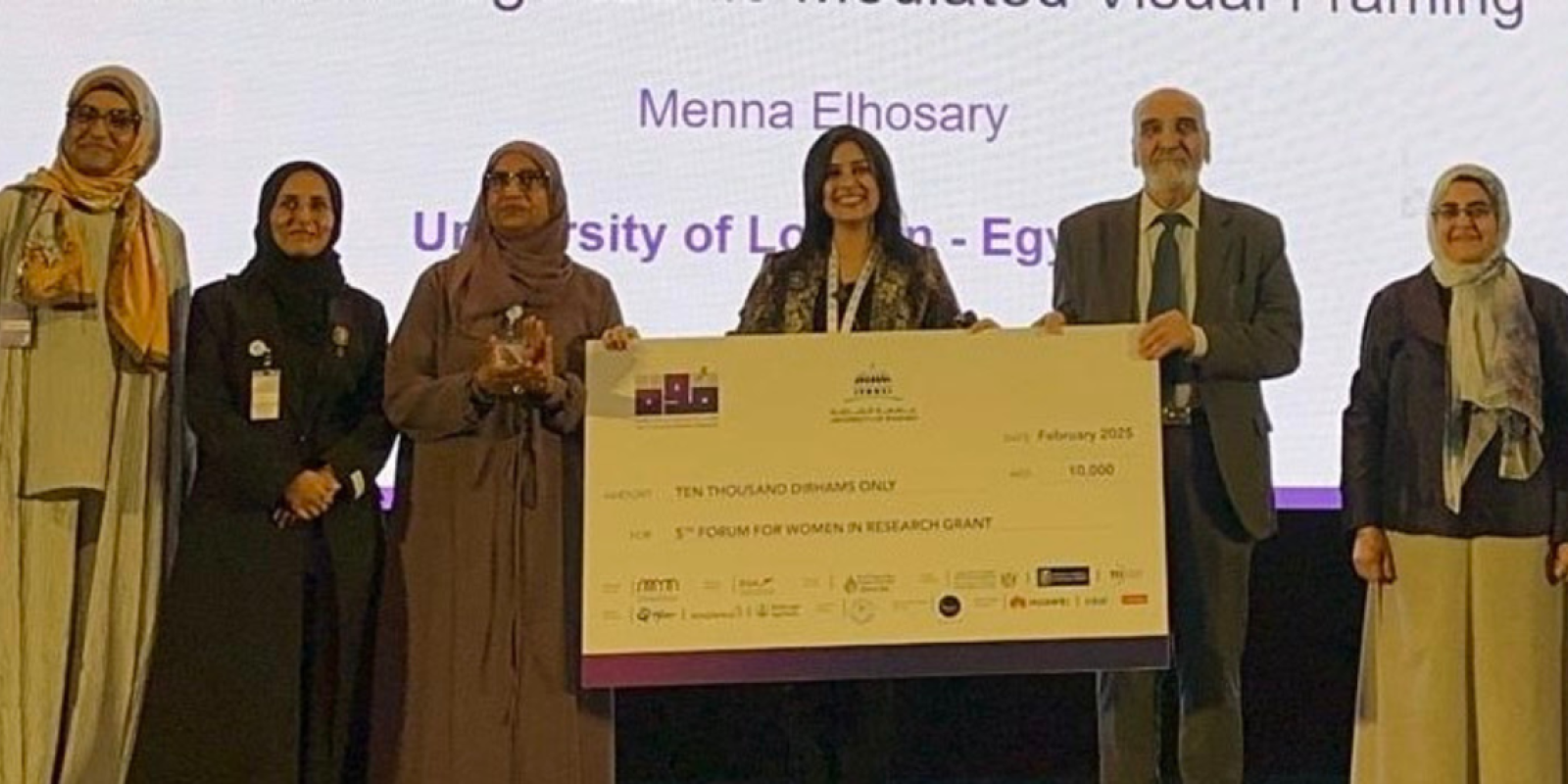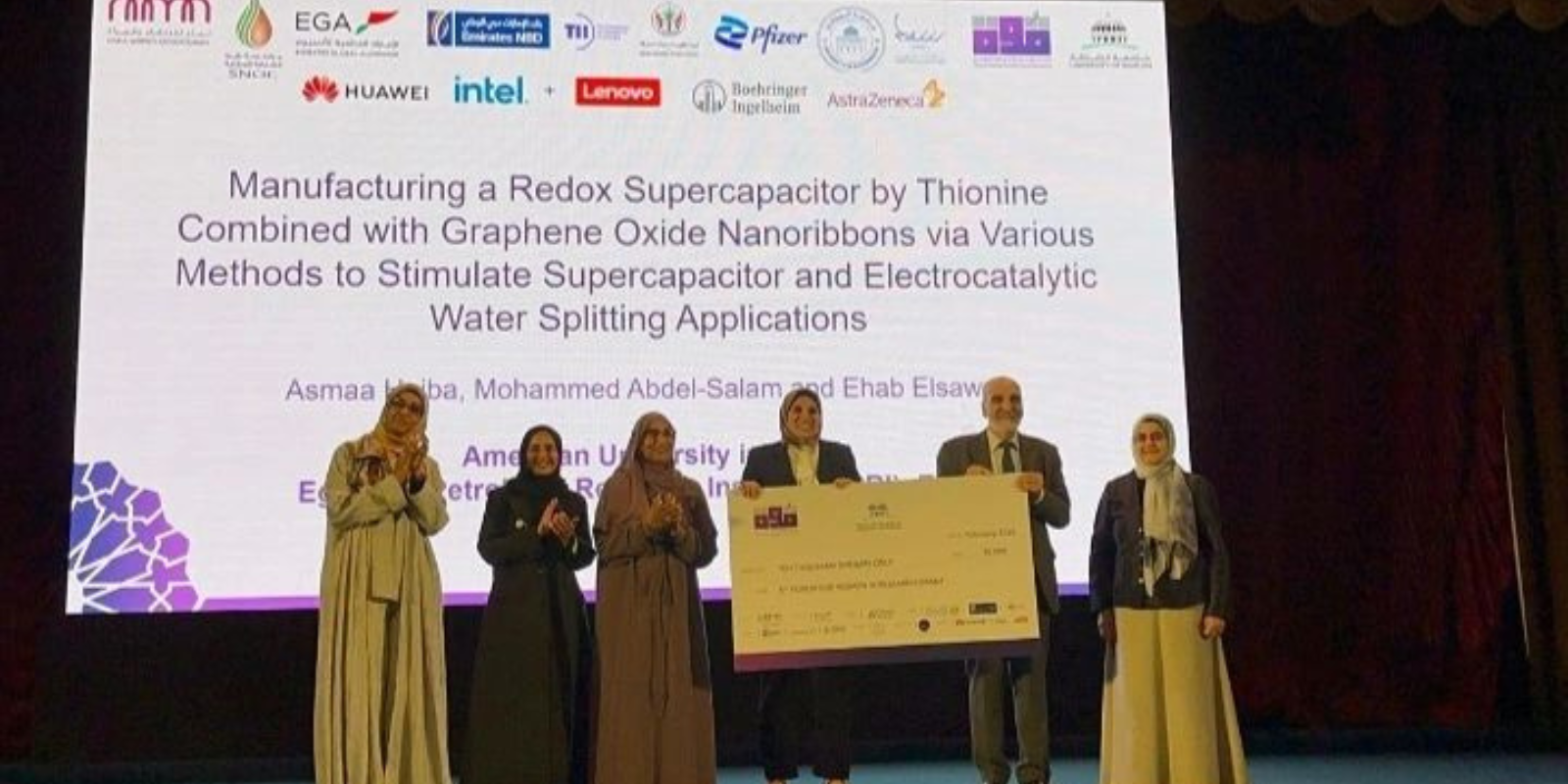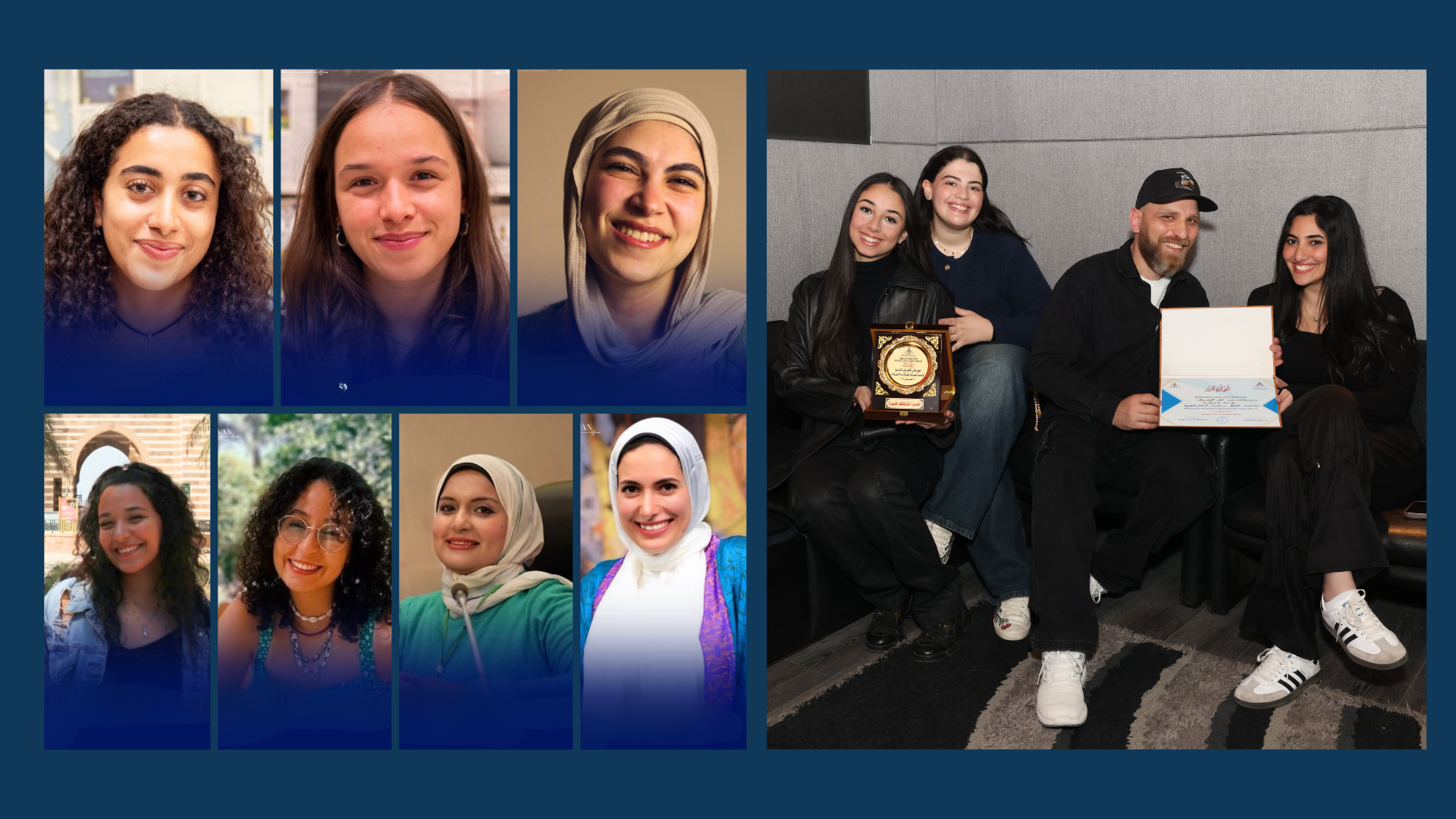A group of undergraduate students from AUC’s Department of Journalism and Mass Communication as well as AUCTV and graduate students from the Kamal Adham Center for Television and Digital Journalism received several awards at media and film festivals in Egypt. The students received the awards in recognition of their excellence, creativity and talent through coursework they conducted at AUC.
First-Place Win at Al Shorouk Film Festival
Undergraduate students Jana Darwish, Dunia Abouelezz and Farida Ragaey won first place at Al-Shorouk Film Festival for Media Students’ Creativity for their film, El Sanad (The Supporter). The short documentary focuses on the story of Rahim, a child diagnosed with the rare condition amyotrophic lateral sclerosis, and his mother's struggle to gain treatment despite financial and bureaucratic obstacles.
"They traveled a grueling four hours each way to Behira, endured a long day of filming, and poured countless hours into post-production. "
The student film was part of the Camera and Editing course taught by Mohammad Badawi, adjunct faculty in the Department of Journalism and Mass Communication. "What truly stood out was the team’s incredible dedication,” said Badawi. “They were ambitious, passionate and deeply committed to telling Rahim's story. They traveled a grueling four hours each way to Behira, endured a long day of filming, and poured countless hours into post-production. Their willingness to go the extra mile, combined with their thoughtful approach to the subject matter, is what made El Sanad such a powerful film.”
This year's festival included more than 250 participants from 44 public and private universities in Egypt as well as nine universities from Jordan, Kuwait, Oman and Algeria. This is the second year for AUC students to win first place in this festival. Read about last year’s win.
Broadcast Education Association (BEA) Festival of Media Arts
Five journalism and mass communication undergraduates, in addition to two graduate students and AUCTV from the Kamal Adham Center for Television and Digital Journalism, scored several wins at the Broadcast Education Association Festival of Media Arts, competing among 2,285 entries. Here are snapshots of the winners and their work:
Undergraduate Students
- Farida Yassin
- Farah Samy
- Zeina Hafez
- Hadia Rashwan
- Tia Khalil
“The fact that I won an international competition for producing a piece based on a fascination I had when I was 9 years old is surreal, and I’m so grateful that Professor Kim believed in me even when I didn’t,” student winner Farah Samy said.
“Winning the award feels unreal. I never thought normal coursework could compete and win a hard competition like BEA."
Three-time student winner Farida Yassin said, “Winning the award feels unreal, I didn’t expect to win an award let alone three. I never thought normal coursework could compete and win a hard competition like BEA. I never expected my work to be heard and seen nationally or internationally. I’m so grateful and thankful to those who helped me through the process and saw potential in my work. Turns out hard work really does pay off.”
"There are so many layers needed to craft a good audio story."
Kim Fox, professor of practice and the instructor for the Audio Production course, where some of the students submitted their winning projects, explained how the students learn to bring their narratives to life through their coursework, gaining both technical expertise and storytelling skills.
"I’m proud of my ability to coach my students to consistently produce high-level audio content that is recognized internationally," Fox said. "It takes a lot of effort from me, them and our teaching assistant. It’s certainly exciting to see their efforts pay off in this way. There are so many layers needed to craft a good audio story. The fact that many of my students grasp those concepts over the course of a semester is a testament to our commitment to the task at hand: learning audio production."
Kamal Adham Center for Television and Digital Journalism
- Sara Huweedi (MA ’25)
- Second place, Graduate News Competition, Descendants of Olive Trees. This TV long feature showcases a nonprofit initiative to provide displaced children from Gaza with education, support and a safe space to heal.
- Amira Ahmed (MA ’25)
- Award of Excellence, Graduate Documentary Competition, Ladies of the Nile, highlighting how Egyptian women, supported by a government initiative, have transformed water hyacinths in the Nile into beautiful handicrafts, creating a sustainable source of income for themselves.
- AUCTV
- Third place, Television National Signature Station Awards for the best student-run, faculty-advised university radio and television station, competing against hundreds of university television channels from inside and outside the United States
“They are considered among the top award recipients in media and journalism competitions and festivals."
The graduate student submissions were produced as part of the TV Digital Journalism Capstone, taught by Hussein Amin, professor and director of the Kamal Adham Center for Television and Digital Journalism, which runs AUCTV.
“Graduate students at the Kamal Adham Center have received more than 42 international and prestigious awards, in addition to national and regional awards over the past seven years,” said Amin. “They are considered among the top award recipients in media and journalism competitions and festivals. This year, for the first time, AUCTV received the third-place award as a student-run university television channel. These achievements highlight the excellence of AUC’s education in media and communication, reinforcing the Kamal Adham Center’s status as a center of excellence.”
"The visuals are beautiful. The story is compelling. The use of audio and music and captions are excellent."
For Sara Huweedi, children from Gaza emerged as a clear and natural choice for her documentary. "The Palestinian cause has always been a wellspring of inspiration for me, a constant force urging me to strive for excellence," said Huweedi. "Working in the media field, I believe it is my calling to amplify their voices, to shed light on the hardships they endure, and to share their stories with the world."
Huweedi was happy to be recognized: "Winning the award was an overwhelming honor, a validation that I am treading the right path, all thanks to the guidance of my professors and the immense wealth of knowledge I’ve acquired during my time at the Kamal Adham Center."
"Working in the media field, I believe it is my calling to amplify their voices, to shed light on the hardships they endure, and to share their stories with the world."
Amira Ahmed was gratified by the comments from the judges, "I received this comment from the judges and felt really over the moon: 'This is one of the best student documentaries I have ever seen. The visuals are beautiful. The story is compelling. The use of audio, music and captions is excellent. This is outstanding."
Ahmed added, "I won the award in one of the most competitive categories, namely the documentary category. It's fulfilling to know that my efforts in documentary filmmaking have been recognized. This motivates me to create more stories. The best is yet to come."





